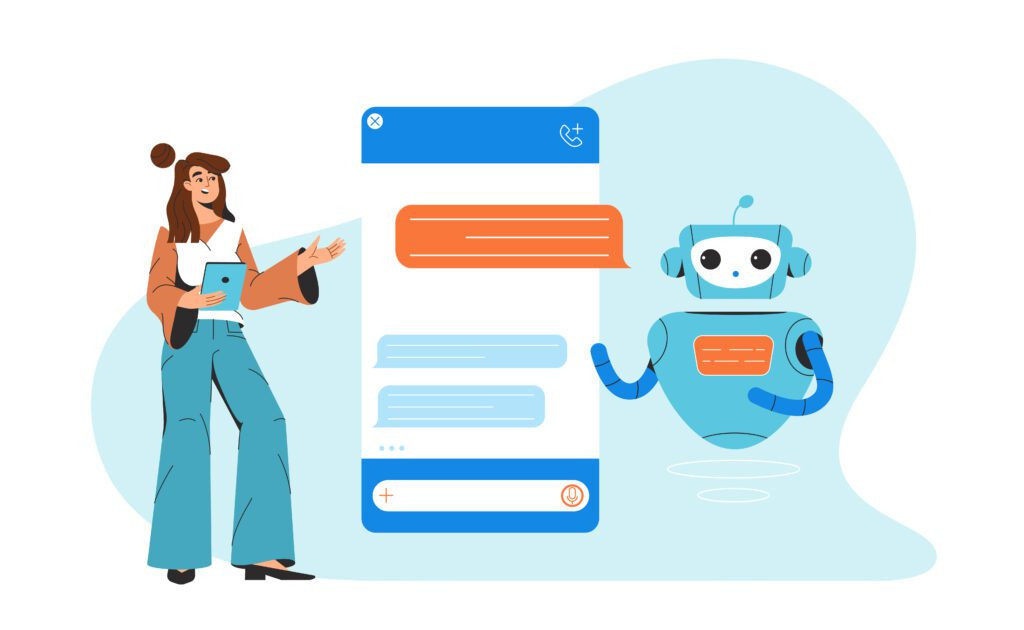Content marketing plays a pivotal role in the digital landscape, enabling businesses to engage and connect with their target audience effectively. As technology continues to evolve, Artificial Intelligence (AI) has emerged as a game-changer in content marketing, offering innovative solutions to create and optimize content. In this article, we will explore the revolutionary impact of AI in content marketing, delve into various artificial intelligence examples, and uncover the power of harnessing generative AI for content creation.
The Role of AI in Content Marketing

Content Creation and Curation
AI-driven tools can generate high-quality content, including articles, blog posts, and social media updates, using advanced Natural Language Processing (NLP) techniques. Additionally, AI can curate content from various sources, streamlining the process of finding relevant and trending topics.
Personalization and Audience Targeting
AI algorithms analyze user behavior and preferences to deliver personalized content to each individual, enhancing user engagement and driving conversion rates. Personalized content resonates better with audiences and fosters brand loyalty.
SEO Optimization
AI-powered content marketing tools can optimize content for search engines, identifying relevant keywords and analyzing search trends to improve search engine rankings and increase organic traffic.
Exploring Artificial Intelligence Examples in Content Marketing
1. Automated Content Generation
AI-powered content generators can produce large volumes of content in a fraction of the time it would take a human writer. These tools can be especially beneficial for content-heavy industries such as news media and e-commerce.
2. Natural Language Processing (NLP)
NLP algorithms enable AI to understand and interpret human language, allowing chatbots and virtual assistants to engage in meaningful conversations with users, answering inquiries, and providing valuable information.
3. Content Personalization
AI-driven content personalization tailors content based on user preferences, behavior, and demographics. Personalized content improves user experience, increases engagement, and boosts conversion rates.
4. Sentiment Analysis
AI-powered sentiment analysis can gauge public sentiment towards brands, products, or services by analyzing social media and online discussions. This insight allows businesses to make data-driven decisions and respond to customer feedback effectively.
Harnessing Generative AI for Content Creation
1. Generative Pre-trained Transformer (GPT) Models
Generative AI models like GPT-3 have shown remarkable capabilities in generating human-like text. These models can produce creative and contextually relevant content, making them invaluable for creative storytelling and marketing campaigns.
2. Customizable Content Templates
Generative AI can be trained on specific writing styles, brand guidelines, or industry-specific terminology to generate content that aligns with a business’s unique voice and tone.
3. Multilingual Content Creation
Generative AI models can create content in multiple languages, enabling businesses to expand their reach to a global audience and connect with diverse markets.
4. Video and Visual Content Generation
Beyond textual content, generative AI is evolving to generate video scripts, captions, and even visual elements, streamlining the entire content creation process for multimedia marketing.
Embracing AI for Enhanced Content Marketing Strategies
1. Integrating AI Content Tools
Businesses should integrate AI-powered content tools into their content marketing workflows, streamlining content creation, curation, and optimization processes.
2. A/B Testing and Optimization
Use AI to perform A/B testing on different content variations to identify the most effective content strategies and continually optimize marketing campaigns.
3. Data-Driven Decision Making
Leverage AI analytics to analyze content performance, user engagement, and conversion metrics to make data-driven decisions and refine content marketing strategies.
Future Trends in AI Content Marketing

1. Hyper-Personalization
AI will continue to advance in hyper-personalization, tailoring content to individual preferences at a granular level, further enhancing user experiences.
2. Voice Search Optimization
With the rise of voice search, AI-powered content optimization will become essential for businesses to adapt their content to voice-based interactions and gain visibility in voice search results.
3. AI-Generated Video Content
Generative AI will evolve to create video scripts and generate video content, enabling businesses to produce engaging videos at scale without significant manual effort.
Conclusion
AI is revolutionizing content marketing by offering advanced capabilities in content creation, personalization, and optimization. With artificial intelligence examples ranging from automated content generation to sentiment analysis, businesses can leverage AI to create highly engaging and relevant content for their target audience. Moreover, harnessing generative AI, such as GPT models, opens up new possibilities for creative storytelling and dynamic content creation. Embracing AI in content marketing strategies allows businesses to stay competitive in the fast-paced digital landscape, driving audience engagement, and achieving marketing success.
Frequently Asked Questions
Answer: Businesses can integrate AI content tools, perform A/B testing and optimization, and use data-driven decision-making to improve content marketing strategies.
Answer: Generative AI, like GPT models, can generate human-like content based on training data. It is used to create customizable content templates, multilingual content, and even video and visual elements.
Answer: Artificial intelligence examples include automated content generation, Natural Language Processing (NLP) for chatbots, content personalization, and sentiment analysis.
Answer: AI revolutionizes content marketing by automating content generation, personalizing content for individual users, optimizing content for SEO, and analyzing audience sentiment.
